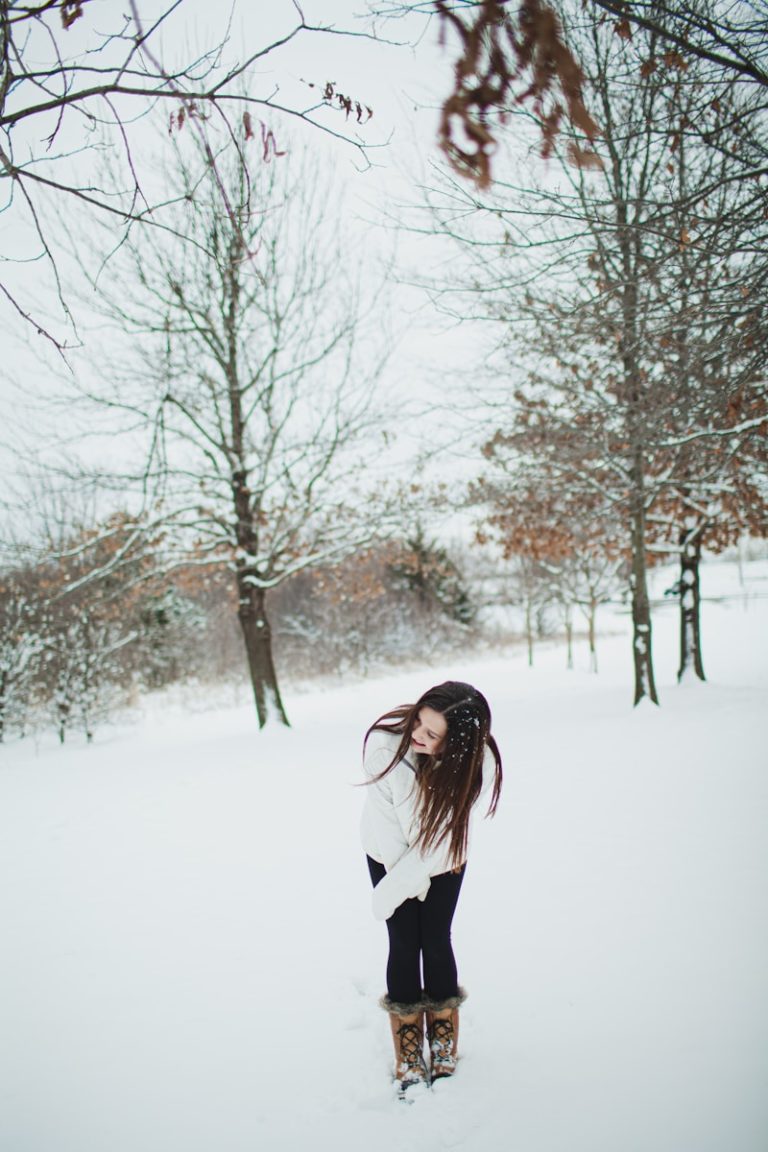Winter Beauty Sleep
Healthy Sleep During Winter: How to Get Restful Sleep and Wake Up Energized
As the days grow shorter and the nights longer, winter can take a toll on our sleep habits. Between the cold temperatures, early sunsets, and added stress from the holidays, getting quality rest can sometimes feel like a challenge. But winter doesn’t have to mean restless nights! In fact, it can be the perfect time to prioritize your sleep and give your body the rest it needs to stay healthy, energized, and in good spirits.
In this post, we’ll share practical tips and soothing rituals that will help you get the best sleep possible during the winter months. Say goodbye to sleepless nights and wake up feeling refreshed, energized, and ready to conquer the day!
1. The Importance of Sleep During Winter
Winter is the perfect time to focus on sleep because it supports your immune system, boosts energy, and improves mental well-being. When we sleep well, our body can repair, recharge, and fight off illnesses more effectively. Plus, with less daylight and colder weather, quality sleep becomes even more important for mood regulation and staying energized.
A lack of sleep in winter can negatively impact your overall health, making you more susceptible to stress, fatigue, and seasonal mood shifts. That’s why it’s essential to create a sleep-friendly environment and a nightly routine that helps you wind down after the day’s activities.
2. Tips for Creating a Cozy Sleep Environment
Your sleep environment plays a crucial role in how well you rest. During winter, it’s all about making your bedroom a cozy sanctuary. Here are some tips for a sleep-friendly setup:
- Warmth and Comfort: Keep your bedroom temperature between 60-67°F (15-19°C), as cooler rooms are ideal for deep, restorative sleep. Add layers with warm, soft bedding, like flannel sheets, a duvet, and thick blankets. If it’s really cold, a heated blanket or mattress pad can do wonders.
- Lighting: As the days get shorter, sunlight exposure can be scarce. Blackout curtains or eye masks will block out the early sunset and streetlights, creating a dark, peaceful atmosphere that signals to your body it’s time to sleep.
- Aromatherapy: Scents like lavender, chamomile, and eucalyptus have calming properties that help induce relaxation. Use a diffuser or lightly scented candles to infuse your room with tranquility.
- Winter Bedding: Layer up with cozy throws, weighted blankets, and extra pillows to make your bed the coziest place to be on chilly nights.
3. Winter Foods and Drinks for Better Sleep
What you consume before bed can affect the quality of your sleep. Some foods and drinks help promote relaxation and signal your body to wind down.
- Herbal Teas: Chamomile, valerian root, and lavender tea are excellent choices for pre-sleep relaxation. These herbs help calm the nervous system, reduce anxiety, and support restful sleep. Enjoy a warm mug of tea an hour before bed.
- Sleep-Inducing Snacks: A small bowl of warm oats, a banana with almond butter, or a handful of cherries can promote relaxation. Bananas are high in potassium, which helps muscles relax, and cherries contain melatonin, a hormone that helps regulate sleep cycles.
- Avoid Caffeine and Heavy Meals: Reduce caffeine intake after early afternoon, as it can interfere with sleep. Also, avoid large meals right before bed, as they can cause indigestion and discomfort.
4. The Power of Routine: Creating a Consistent Sleep Schedule
Maintaining a consistent sleep schedule helps regulate your circadian rhythm, making it easier to fall asleep and wake up naturally. Even during winter, it’s important to go to bed and wake up at the same time every day, even on weekends.
- Regular Bedtime: Try to establish a bedtime that allows for at least 7-9 hours of sleep. If you find yourself staying up late, gradually shift your bedtime earlier each night until you reach your ideal sleep time.
- Relaxing Pre-Sleep Rituals: Help signal to your body that it’s time to wind down by incorporating relaxing activities into your evening routine. Try reading a book, journaling, or doing gentle stretches before bed. Avoid screen time (TV, smartphones, and computers) for at least 30 minutes before sleep, as the blue light emitted can interfere with melatonin production.
5. Maximize Sunlight Exposure During the Day
Winter means fewer daylight hours, but sunlight is crucial for regulating your sleep-wake cycle. Exposure to natural light during the day boosts your mood and signals to your body when it’s time to be awake and active.
- Take Daytime Walks: Even if it’s cold, try to get outside for at least 20 minutes of sunlight each day. Take a brisk walk during lunch, or simply sit by a window where you can soak up some natural light.
- Sit by a Sunny Window: If it’s too cold to go outside, sitting by a window with lots of sunlight can still provide beneficial light exposure.
6. Be Mindful of Winter Stress
The holiday season, added responsibilities, and shorter days can lead to increased stress, making it harder to sleep at night. It’s important to manage stress and prioritize self-care to improve your sleep quality.
- Stress-Relief Practices: Try integrating practices like meditation, deep breathing, or gentle yoga into your pre-sleep routine. These activities help calm your mind and prepare your body for relaxation.
7. Winter-Specific Supplements and Sleep Aids
Some natural supplements can support your sleep, especially during the winter months when our sleep patterns may be more disrupted.
- Melatonin: If you struggle with falling asleep due to lack of light, melatonin supplements can help regulate your circadian rhythm. Always check with your healthcare provider before adding supplements to your routine.
- Magnesium: Magnesium plays a role in muscle relaxation and stress reduction, making it a great sleep aid. Incorporate magnesium-rich foods like leafy greens, nuts, seeds, and whole grains, or consider taking magnesium supplements.
8. When to Seek Help: Sleep Disorders and Winter Wellness
While many people can improve their sleep with these tips, persistent sleep problems might require professional attention. If you find yourself experiencing chronic insomnia, sleep apnea, or other sleep-related issues, it’s important to consult a healthcare provider or sleep specialist.
Conclusion
Winter is the perfect time to prioritize your sleep. By creating a cozy, restful environment, sticking to a consistent sleep routine, and incorporating relaxing winter rituals, you can enjoy quality sleep that leaves you feeling refreshed and energized. Sleep plays a vital role in your immune health, mood, and overall well-being, so don’t let the winter chill keep you from getting the rest you deserve.
Sweet dreams and restful nights await! 🌙






